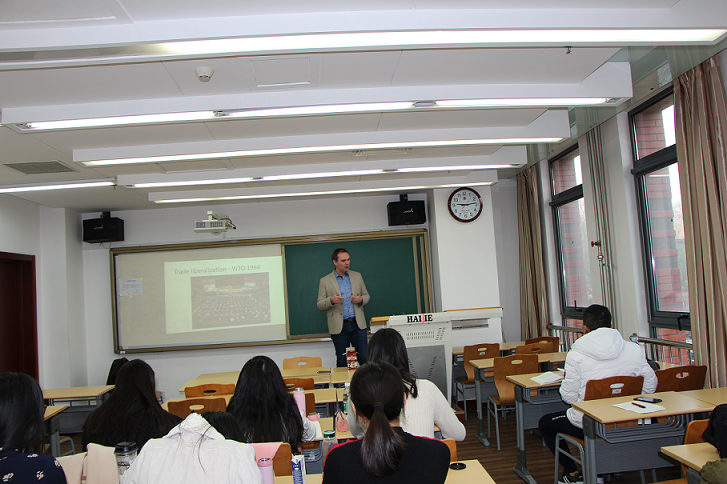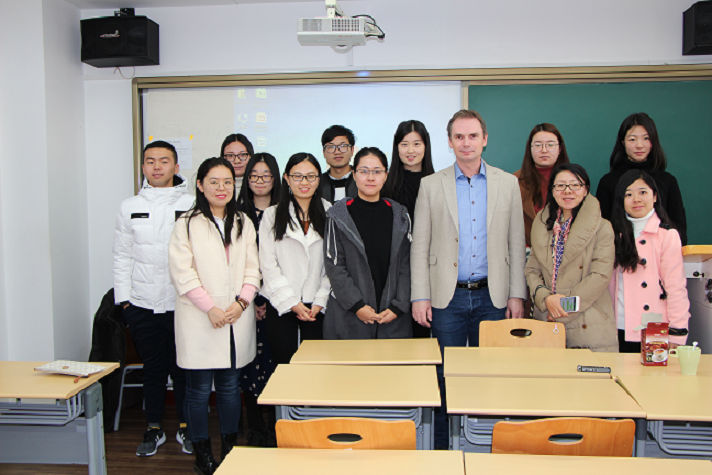On November 27, 2017, at the invitation of Professor Zhang, Radu Mares, associate professor, Team Leader of Economic Globalization and Human Rights brought a wonderful lecture to the Institute for Human Rights. He chose “human rights risk management" as the topic of the lecture. Mr. Mares got doctor of law (2006) and associate professor (2012) degree from the Faculty of law. He is specialized in the area of business and human rights, with a focus on multinational enterprises and global supply chains. His work combines transnational law, corporate governance and corporate social responsibility perspectives.

In today's lecture, Mr. Mares first introduced the beautiful natural scenery, the long history of the humanities and the rich cultural deposits of the Swedish city of Lund.
Next, Mr. Mares introduced under the conditions of economic globalization in the formation of global value chains, reveals the disadvantage in the value chains of the country or region of people facing the worse human rights situation. Then, he analyzed the responsibilities of different subjects in “human rights risk management” from the perspectives of private and government departments, domestic standards and international standards.
Firstly, the private sector should not only reduce the negative impact on human rights, but also actively promote human rights protection. About it, Mr. Mares specifically referred to the UN sustainable development goals. Secondly, the state should respect, protect and promote human rights, and he specifically mentioned the relevant contents of the universal declaration of human rights. Thirdly, corporate enterprises should also shoulder the corresponding social responsibility, and not only to comply with local laws, but also to respect international human rights law. In the end, he specifically introduced the relevant contents of the United Nations guidelines on industrial and commercial and human rights.
Moreover, Mr. Mares introduced the methods of human rights risk management, which named the PDCA (Plan, Do, Check, Act), and stressed the human rights risk management is a cycle process, and it need deal with new situations constantly.
In the end, some students asked questions actively, and Mr. Mares answered them one by one, the students benefited a lot. Mr. Mares and students took pictures together.
